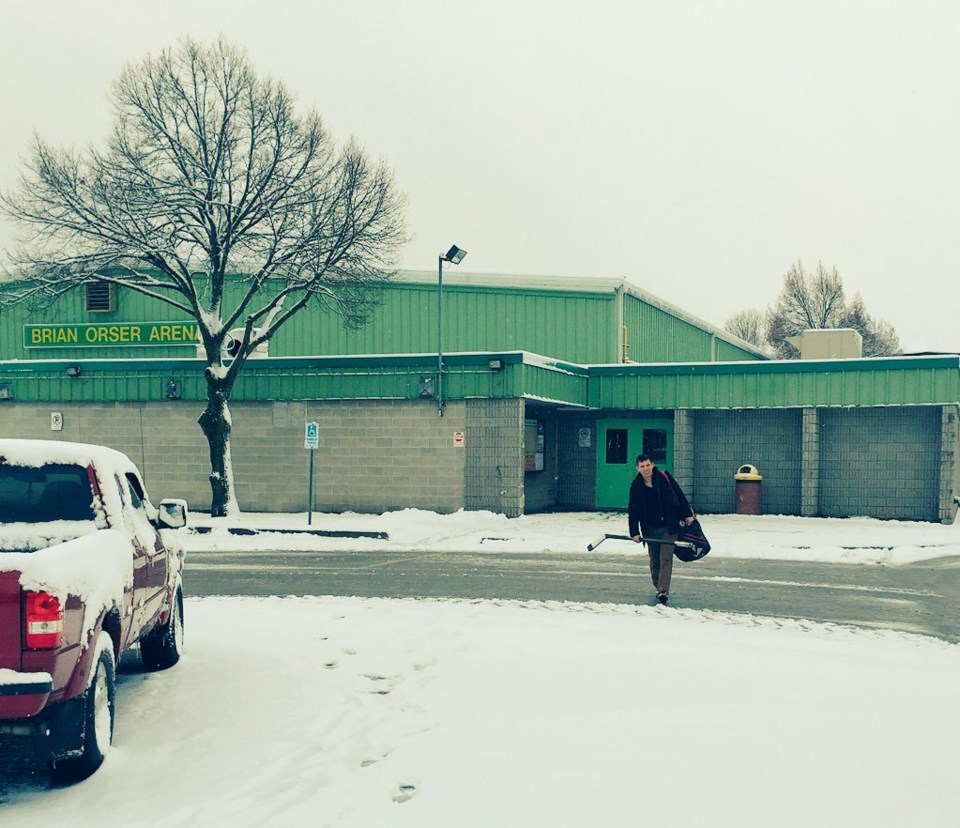Coun. Ralph Cipolla wonders about the wisdom of investing more money in Brian Orser Arena.
During recent budget deliberations, city staff requested $50,000 to replace some of the lighting at the aging ice rink on Gill Street.
That sparked a debate about the fate of the facility.
“From what I hear from people, Brian Orser Arena is not their first choice in terms of the seating, how cold it is … I mean it’s an old building,” said Cipolla.
“Is new lighting really that imperative?” asked the Ward 2 councillor. “Could this not be put off until some of us have an opportunity to talk to the province or the feds to see if we can get funding for Phase 2 of the rec centre?”
Cipolla was alluding to the potential of adding a rink to the Orillia Recreation Centre; the facility which will be home to a municipal pool, gyms, jogging track and fitness centre is slated to open in June.
Ray Merkley, the city’s manager of parks, recreation and culture, said staff are simply following council’s direction when it comes to Brian Orser Arena.
“We are working on direction from council of 2013 that we move ahead with renovations to Brian Orser Arena,” said Merkley.
Since 2013, Merkley said the city has invested about $520,000 in various improvements and upgrades.
“Until such time that council directs us otherwise, we’re still implementing that plan,” said Merkley, noting the lighting is the latest component of the plan.
Orillia Mayor Steve Clarke said much more money will be required at the arena in the coming years.
“Make no mistake about it, moving forward it’s probably $2-3 million that we need to invest at Brian Orser Arena if we’re going to keep it for the medium or longer term,” said Clarke.
Merkley said by continuing to follow the plan, the arena could last another decade or longer.
Unlike the former Orillia Community Centre, which had a wood roof and structural issues that led to it being condemned, the Brian Orser Arena is a “butler, metal-style building,” said Merkley, who noted it’s structurally sound.
Merkley noted that $1 million will be requested in 2020 and a further $3 million in 2023 for various work at the arena.
Coun. Mason Ainsworth said it’s a wise investment.
“I think it’s important we do look after our current facilities,” said Ainsworth, urging council to “follow the plan and look after” the building.
In the end, council agreed.
According to the report presented to council, the current lighting at the arena is original to the building, which was built in 1976.
“It is believed the existing fixtures have been in place since the building opened in 1976. The ballasts are no longer available for replacement,” noted the report.
Council approved $50,000 for the first phase of a two-phase replacement of lighting. This year, the lighting over the ice surface will be replaced. The remainder of the lighting is to be replaced in 2020.
The old metal halide lighting and ballasts will be replaced with LED lighting.
Staff noted LED lighting provides “significantly more efficient lighting” and offers these benefits:
- Increased lumens at lower energy requirements (ie. 400 W metal halide equals 120 W LED);
- There is no warm-up or cool-down period with LED lighting, which also runs cooler than standard halide lighting, reducing the load on the cooling system within the ice rink;
- Reduces risk factors associated with high pressure hazardous gases as well as environmental concerns with disposal; and
- Lighting is more focused and may be dimmed where metal halide cannot.
In addition, maintenance on LED fixtures is “significantly less”; they come with a 10-year warranty. Metal halide fixtures require ballast replacement by an electrician using a lift to access the fixture. Every time a ballast fails, its associated costs (approximately $400) are much higher to repair the light.
It is thought the project may be eligible for energy rebates through Save the Entergy program which would help offset the cost.
